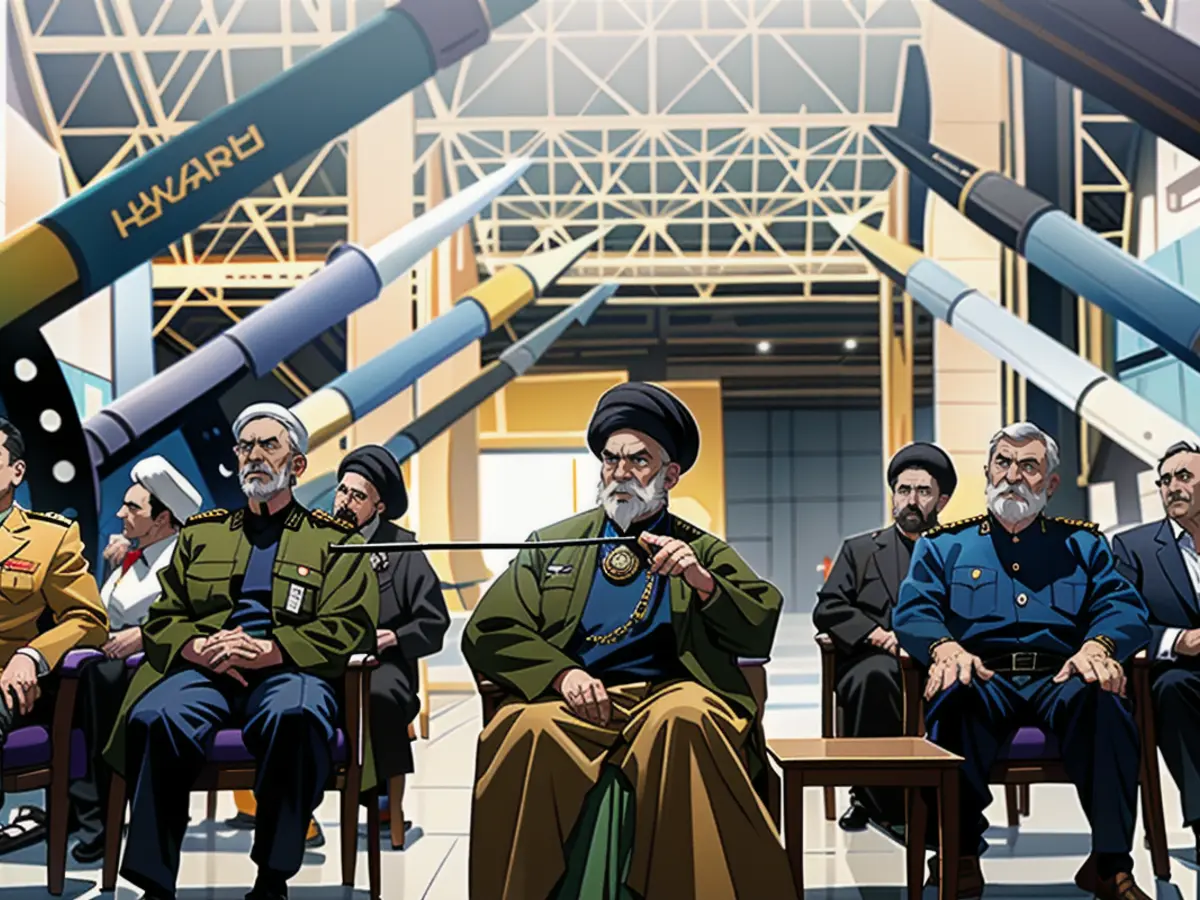Düsseldorf's Appellate Court Ruling - Decision may allow classification of Revolutionary Guards as terrorists
A number of European Union (EU) countries, including Germany, seek to categorize the Iranian Revolutionary Guards (IRG) as a terrorist group on the basis of a court ruling from Düsseldorf. This information was revealed during an EU foreign ministers' gathering in Brussels on Monday.
At Germany's request, the EU Council's legal service has scrutinized the Düsseldorf higher court's decision, confirming it might be utilized as a foundation for a European Union (EU) terror designation of the IRG, according to European diplomats. The ruling disclosed an instruction from an Iranian state agency for a failed synagogue arson attack.
For years, Israel has advocated for the IRG's classification as a terrorist organization. These demands were amplified following Iran's attack on Israel in April. Historically, the EU has stated that listing the elite forces as terrorists was legally impracticable as it would necessitate a national court decision or a prohibition order from an administrative body. There was doubt in the EU Foreign Service that the Düsseldorf verdict would meet the required conditions.
As per EU sources, several EU nations now endorse the notion of initiating the action for an EU Council designation of the Revolutionary Guards. German Foreign Minister Annalena Baerbock (Greens) has repeatedly vowed her support for this listing. Nonetheless, it remains uncertain if there is a majority of the 27 member states to endorse a terror designation. It must be ratified unanimously.
The EU's foreign policy chief, Josep Borrell, had previously been viewed as a critic of classifying the Revolutionary Guards as a terrorist entity within the EU. One reason for this stance is the endeavors to encourage Iran to adhere to a nuclear program limitation agreement and prevent it from constructing an atomic bomb.
On Monday, EU diplomats underscored that the terror designation of the IRG would primarily be a symbolic move. The logic behind this is that there are already EU sanctions against them.
Judgment Resulting from Arson Attack Plot
The Düsseldorf higher court's ruling was rendered in December due to a foiled synagogue arson attempt in Bochum. A German-Iranian was sentenced to a combined 2 years and 9 months in jail for plotting a serious arson attack and attempted arson (case III-6 StS 1/23).
The IRG maintains the state ideology in Iran and they also prevent coup plots. They are believed to have executed the April attack on Israel, in which several hundred rockets and drones were employed; however, due to Israel and its allies' resilient air defense system, the incident inflicted minimal damage.
Diplomats reiterated on Monday that the EU's designation of the IRG as a terrorist group would primarily serve as a symbolic gesture. This is because existing EU sanctions already target them.
Read also:
- Tough return to normality in snow and ice
- Fewer unauthorized entries: Domino effect through controls
- Trial against BND employee from mid-December
- Xhaka leads Leverkusen to triumph in cup tournament, scoring two goals.
- In response to the Düsseldorf Appellate Court's ruling, several EU nations are considering initiating the process for an EU Council designation of the Iranian Revolutionary Guards as a terrorist organization.
- The EU Council's legal service has reviewed the Düsseldorf Higher Regional Court's decision, suggesting it could serve as a basis for such a terror designation within the EU.
- This move follows Israel's long-standing demand to classify the Revolutionary Guards as a terrorist organization, which gained momentum after Iran's attack on Israel in April.
- The Düsseldorf Higher Regional Court's ruling was a result of a foiled synagogue arson attempt in Bochum, leading to a German-Iranian being sentenced for plotting a serious arson attack and attempted arson.
- If successful, the EU's designation of the Revolutionary Guards as a terrorist group would primarily serve as a symbolic gesture, as existing EU sanctions already target them.
- Despite the possibility of unanimous support, it remains uncertain if there is a majority of the 27 EU member states to endorse a terror designation, as it requires such unanimous approval.
Source: www.stern.de








